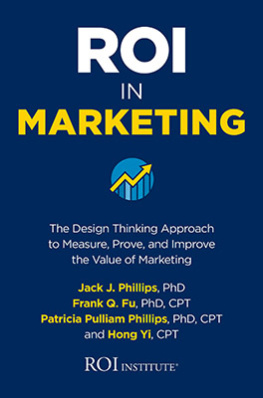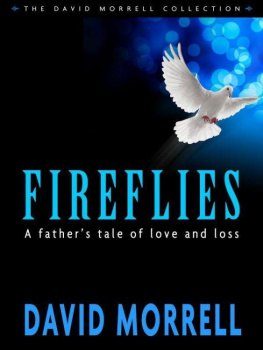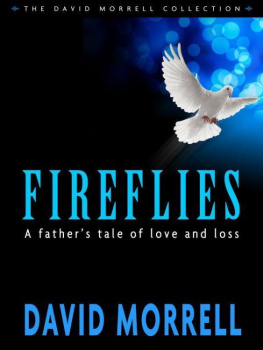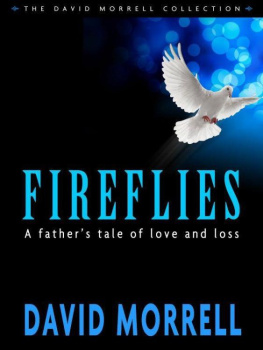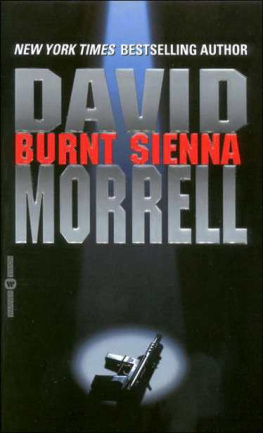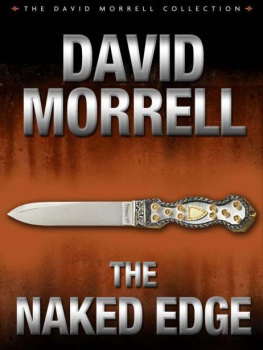
John Phillips and the Business of Victorian Science
John Phillips was one of the most remarkable and important scientists of the Victorian period. Orphaned at the age of seven and brought up by his uncle, he rose to hold a number of highly prestigious posts within the British academic and scientific community, despite lacking a university education. By the time of his death in 1874 he was widely regarded as one of the pioneers and champions of the science of geology, yet until now there has been no full length biography of Phillips.
In rectifying this lacuna, Jack Morrell has produced a meticulous and magisterial piece of scholarship that does justice to the achievements and legacy of John Phillips. Adopting a broadly chronological approach, the book not only traces the development of Phillipss career but clarifies and highlights his role within Victorian culture, shedding light on many wider themes. It explores how Phillipss love of science was inseparable from his need to earn a living and develop a career which could sustain him. Hence questions of power, authority, reputation and patronage were central to Phillipss career and scientific work.
Drawing on a wealth of primary sources and a rich body of recent writings on Victorian science, this biography provides a fascinating and compelling account of John Phillips and his legacy. Pulling together his personal story with the scientific theories and developments of the day, and fixing them firmly within the context of wider society, this biography will be vital reading for anyone with an interest in the history of British and nineteenth-century science.
About the Author
Jack Morrell is Honorary Visiting Lecturer, History of Science, University of Leeds, UK.
Science, Technology and Culture, 1700-1945
Series Editors
David M. Knight
University of Durham
and
Trevor Levere
University of Toronto
Science, Technology and Culture, 1700-1945 focuses on the social, cultural, industrial and economic contexts of science and technology from the scientific revolution up to the Second World War. It explores the agricultural and industrial revolutions of the eighteenth century, the coffee-house culture of the Enlightenment, the spread of museums, botanic gardens and expositions in the nineteenth century, to the Franco Prussian war of 1870, seen as a victory for German science. It also addresses the dependence of society on science and technology in the twentieth century.
Science, Technology and Culture, 1700-1945 addresses issues of the interaction of science, technology and culture in the period from 1700 to 1945, at the same time as including new research within the field of the history of science.
Also in this series
Science and Beliefs
From Natural Philosophy to Natural Science, 1700-1900
Edited by David M. Knight and Matthew D. Eddy
The Genius of Erasmus Darwin
Edited by C.U.M. Smith and Robert Arnott
Science and Dissent in England, 1688-1945
Edited by Paul Wood
Discovering Water
James Watt, Henry Cavendish and the Nineteenth-Century Water Controversy
David Philip Miller
First published 2005 by Ashgate Publishing
Reissued 2018 by Routledge
2 Park Square, Milton Park, Abingdon, Oxon, OX14 4RN
711 Third Avenue, New York, NY 10017, USA
Routledge is an imprint of the Taylor & Francis Group, an informa business
Jack Morrell 2005
The author has asserted his moral right under the Copyright, Designs and Patents Act, 1988, to be identified as the author of this work.
All rights reserved. No part of this book may be reprinted or reproduced or utilised in any form or by any electronic, mechanical, or other means, now known or hereafter invented, including photocopying and recording, or in any information storage or retrieval system, without permission in writing from the publishers.
A Library of Congress record exists under LC control number: 2004006876
Notice:
Product or corporate names may be trademarks or registered trademarks, and are used only for identification and explanation without intent to infringe.
Publishers Note
The publisher has gone to great lengths to ensure the quality of this reprint but points out that some imperfections in the original copies may be apparent.
Disclaimer
The publisher has made every effort to trace copyright holders and welcomes correspondence from those they have been unable to contact.
ISBN 13: 978-0-815-38999-6 (hbk)
ISBN 13: 978-1-351-15488-8 (ebk)
In writing this book I have profited from the support of many people and institutions. For general encouragement and particular help I am indebted to David Allen, Simon Bailey, Anne Banett, Douglas Bassett, Bill Brock, John Brooke, Neil Brown, Janet Browne, Bill Bynum, Gordon Herries Davies, Brian Harrison, Tony Heywood, Roger Hutchins, Ian Inkster, the late Bobby Jenkins, David Knight, Frank James, David Levene, David Miller, Dorinda Outram, John Pickstone, the late Roy Porter, Munro Price, Anne Secord, Tom Sharpe, Tony Simcock, and the late John Thackray. At the Oxford University Museum of Natural History I have been welcomed by Jim Kennedy, Philip Powell, and above all by Stella Brecknell, its ever-helpful librarian who looks after the Phillips papers to which she has produced an excellent hand-list. I began sustained research on Phillips in 1985 when I enjoyed a visiting fellowship at Brasenose College, Oxford, and received the first of several grants from the Royal Society of London for this particular project. I have benefited from the help given by many librarians and archivists, and especially from the first-rate services provided by the university libraries of Leeds and Bradford. Since 1992 I have had the privilege of being an honorary visiting lecturer in history of science at the University of Leeds, where Sam Alberti, Geoffrey Cantor, John Christie, Steven French, Graeme Gooday, Jonathan Hodge, Chris Kenny, Richard Noakes, Suzanne Paylor, Gregory Radick, Jonathan Topham, and Adrian Wilson have given friendship, stimulus, and useful references. I owe much to three distinguished historians of geology, Martin Rudwick, Jim Secord, and Hugh Torrens for advice, encouragement, and information freely given over many years. With characteristic generosity Jim Secord has read meticulously the entire manuscript of this book. It has been greatly improved by his incisive comments.
For expert typing I thank Christine Lawlor. At Ashgate, Thomas Gray, Celia Hoare and their colleagues have aided me beyond the call of duty. For enabling me to finish the book I am grateful to the staff of the Heaton Medical Practice, Bradford. For forbearance I am beholden to my family, to whom this book is dedicated.
For permission to cite manuscripts in their care or ownership I am grateful to the American Philosophical Society (W. Hutton and Darwin papers, miscellaneous correspondence); the Bodleian Library, Oxford (BAAS archives, including General committee minutes, Council minutes, Foundation volume, York reception committee proceedings, documents pertaining to mines; H.W. Acland papers; Ashmolean Society papers); Bradford District archives (W.Danby papers); Bristol University Library (Eyles collection); British Geological Survey, Keyworth (Geological Survey archives); British Library (Peel papers); British Museum (Natural History) (Owen Papers; miscellaneous correspondence); Buxton Museum (Dawkins collection); Cambridge University Library (Greenough, Henslow, Kelvin, Sedgwick, and Stokes papers); Cambridge University Museum of Zoology (Strickland papers); Devon Record Office (Buckland papers); Edinburgh University Library (Lyell, Murchison Gen 523, and Geikie Gen 525 papers; miscellaneous correspondence, including letters to Phillips, Gen 78411); Fitzwilliam Museum, Cambridge (miscellaneous correspondence); the Honourable Mrs C Gascoigne (Harcourt papers); Geological Society of London (Murchison papers); Humberside County archives (H Robinson papers); Imperial College, London, archives (Huxley, Playfair, and Ramsay papers); Kings College, London, archives (KCL Council minutes, incoming correspondence, letter book 183443); Leeds Public Libraries archives, Sheepscar, now known as West Yorkshire archive service, Leeds (T. Wilson papers, Yorkshire Naturalists Club archives); Leeds University Library (Leeds Philosophical and Literary Society archives, Yorkshire Geological Society archives); London University Library (Phillips autobiographical notebook, MS 517); Magdalen College, Oxford, Library (Daubeny papers; Phillips foreign travel journals, 1829, 1830); Manchester Public Library (Royal Manchester Institution archives, including incoming letters M6/1/502, letter books M6/1/49/17, and syllabuses M611/70; Massachusetts Institute of Technology Library (WB. Rogers papers); Mitchell Library, Glasgow (Phillips journal of tour of Scotland, 1826); John Murray (Murray papers); Museum of History of Science, Oxford (Phillips notebook c.1819, Gunther MS S 64, 65); National Library oflreland (Larcom and Monteagle papers); National Library of Wales, Aberystwyth (Ramsay papers, Dolaucothi MSS); National Museum of Wales, Department of Geology (De 1a Beche papers); Northamptonshire Record Office (Fitzwilliam papers); Oxford University archives (Hebdomadal Board minutes, Hebdomadal Council reports, Burdett-Coutts letters, Ashmolean keepership letters, report on Hope collection, papers concerning University Museum 184963, N.W2.1, Oxford University Museum archives cited as OUAIUM, including minutes of Museum delegacy M/113, correspondence C/3/2, and capitals documents F/7/7); Oxford University Museum of Natural History, Library (Buckland, Phillips, and W Smith papers, historical archive cited as OUM/HA); Public Record office (Sabine papers, BJ3); Pusey House, Oxford (Pusey papers); Royal Institution, London (Managers minutes, RI archives, Grove papers, M. Reids diary); Royal Society of London (Buckland, R.W Fox, Herschel, J.W Lubbock, Sabine, and Terrestrial magnetism papers, Council minutes, Miscellaneous correspondence MC, Miscellaneous manuscripts MM, Referees reports RR); St Andrews University Library (J.D. Forbes papers); St Brides Printing Library, London (R. Taylor collection); Sheffield Public Library (Sorby papers; Wentworth Woodhouse muniments); Torquay Museum (Pengelly collection); Trinity College, Cambridge, Library (Whewell papers); Trinity College, Dublin, Library (TCD Board minutes, Hamilton papers); Turnbull Library, Wellington, New Zealand (Mantell papers); University College, London, Library (Brougham, Chadwick, F. Galton, and SDUK papers; UCL archives including College correspondence and applications for chairs); Wellcome Historical Medical Library, London (autograph letters); Yale University Library (J.B. Murray collection); York City archives (York Mechanics Institute archives including Committee minute book, monthly meetings minute books, book listing lectures, classes and members 182751); Yorkshire Philosophical Society (Building committee minutes 18259, Council minutes, evening meetings minutes 183648, General meetings minutes, letter book 18228, miscellaneous correspondence, scientific communications 182238, and Phillips day-book 18268).




